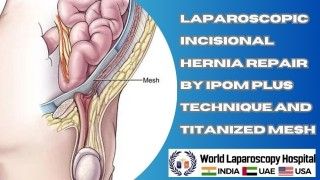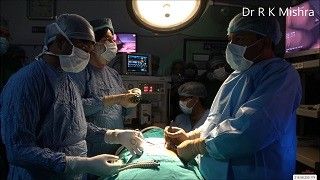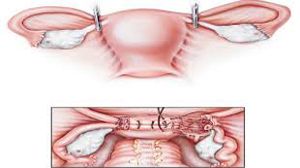Cautious Considerations: Is Laparoscopic Surgery Safe for Pregnant Women?"
Add to
Share
1,218 views
Report
1 year ago
Description
Introduction Pregnancy is a time of great joy and anticipation, but it can also bring unexpected medical challenges. In some cases, pregnant women may require surgical interventions to address health issues such as appendicitis, gallbladder problems, or ovarian cysts. In these situations, laparoscopic surgery, a minimally invasive surgical technique, might be recommended. However, the safety of laparoscopic surgery during pregnancy remains a subject of concern and debate. This article delves into the cautious considerations surrounding the safety of laparoscopic surgery for pregnant women. Understanding Laparoscopic Surgery Laparoscopic surgery, often referred to as minimally invasive surgery, involves making small incisions in the abdominal wall to insert a camera and surgical instruments. This allows the surgeon to perform procedures within the abdominal or pelvic cavity without the need for a large, open incision. Laparoscopy is a preferred approach in non-pregnant patients due to its reduced postoperative pain, shorter hospital stays, and faster recovery times. Safety Concerns Anesthesia Risk One primary concern regarding laparoscopic surgery during pregnancy is the administration of anesthesia. Anesthesia can have systemic effects, which can affect both the mother and the developing fetus. However, modern anesthesia techniques and careful monitoring have significantly reduced the risks associated with anesthesia during pregnancy. Fetal Exposure to Carbon Dioxide (CO2) During laparoscopic surgery, carbon dioxide gas is used to create a space within the abdominal cavity for better visualization. There is a concern that CO2 exposure could potentially harm the fetus. However, the CO2 used in laparoscopy is typically well below harmful levels, and the maternal body naturally absorbs it. Surgical Trauma Minimally invasive surgery is generally less traumatic than open surgery. However, any surgical procedure carries a risk of complications, and potential complications might impact both the mother and the fetus. These complications could include infection, bleeding, or injury to surrounding structures. Timing of Surgery The timing of laparoscopic surgery during pregnancy is crucial. Most experts agree that the first trimester is the riskiest time for fetal development. Therefore, whenever possible, surgical procedures should be delayed until after the first trimester, when the risk to the developing fetus is lower. Indications for Laparoscopic Surgery During Pregnancy Laparoscopic surgery during pregnancy is typically reserved for cases in which the potential benefits outweigh the risks. Some common indications for laparoscopic surgery during pregnancy include: Acute appendicitis: If left untreated, acute appendicitis can lead to serious complications. In such cases, surgery may be necessary to remove the inflamed appendix. Gallbladder disease: Gallbladder problems can be excruciating, and in severe cases, surgical removal of the gallbladder may be required. Ovarian cysts: Large or painful ovarian cysts may need to be removed if they pose a threat to the pregnancy or if they are suspected of being cancerous. Ectopic pregnancy: In rare cases, an ectopic pregnancy (a pregnancy outside the uterus) may require laparoscopic surgery to remove the ectopic pregnancy. Conclusion Laparoscopic surgery during pregnancy is a topic that requires careful consideration and a case-by-case evaluation of the potential risks and benefits. It is essential for both the pregnant woman and her healthcare team to weigh these factors, considering the urgency of the surgical intervention, the timing of the pregnancy, and the patient's overall health. Whenever possible, surgery should be postponed until after the first trimester to minimize potential risks to the developing fetus. Ultimately, the decision to proceed with laparoscopic surgery during pregnancy should be made collaboratively between the patient and her healthcare providers, taking into account all available information and resources to ensure the health and well-being of both the mother and the baby. It is important for pregnant women facing the prospect of surgery to discuss their concerns and questions with their healthcare providers to make informed decisions about their care.
Similar Videos






